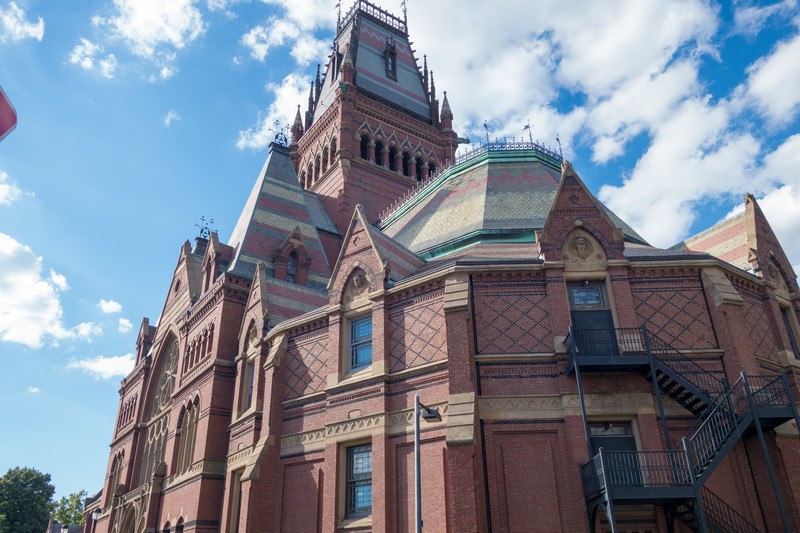A Laudable Goal Backfires at Harvard
Higher Education
 Harvard University’s recent announcement to punish students who join single-gender organizations quickly made waves throughout the higher education community. In a memo distributed on May 6, Harvard President Drew Gilpin Faust stated that students who join single-gender organizations would be barred from prestigious scholarships and prohibited from holding leadership positions on athletic teams or recognized campus organizations. As justification for this aggressive tactic Faust cited goals of seeking greater inclusion and addressing “deeply rooted gender attitudes.”
Harvard University’s recent announcement to punish students who join single-gender organizations quickly made waves throughout the higher education community. In a memo distributed on May 6, Harvard President Drew Gilpin Faust stated that students who join single-gender organizations would be barred from prestigious scholarships and prohibited from holding leadership positions on athletic teams or recognized campus organizations. As justification for this aggressive tactic Faust cited goals of seeking greater inclusion and addressing “deeply rooted gender attitudes.”
Harvard’s intended action quickly drew harsh condemnation from a variety of affected organizations and First Amendment watchdog groups. “Outrageously, Harvard has decided that 2016 is the right time to revive the blacklist,” said Robert Shibley, executive director of the Foundation for Individual Rights in Education (FIRE), which defends freedom of association on campus. “This year’s undesirables are members of off-campus clubs that don’t match Harvard’s political preferences.”
“Harvard’s decision simply demonstrates that it is willing to sacrifice students’ basic freedom of association to the whims of whoever occupies the administrative suites today,” added FIRE co-founder, civil liberties attorney, and Harvard Law alumnus Harvey Silverglate.
As the unstated targets of the new policies, trade groups representing fraternities and sororities promptly joined FIRE in expressing concern over the administration’s intent to sanction students for free association.
“While we understand and share Harvard’s goals of creating a safe and equitable environment for students, we are discouraged and disappointed by the policy announced Friday, as it mistakenly assumes the way to achieve those ends is to punish students for participating in single-gender organizations,” the joint statement read. “We urge Harvard to reconsider this policy. Not only does it deny students the basic right of free association, it penalizes them for involvement in fraternities and sororities—experiences that foster leadership, personal growth and the very sense of engagement college is designed to create.”
 Female Harvard students were perhaps the most prominent voices speaking out against the administration’s announcement. Hundreds of students led a demonstration on campus voicing concern that Harvard’s crackdown on single-gender organizations will shutter an important community that supports women’s rights and other causes. For many of Harvard’s stakeholders the single-gender requirement is at odds with the need for so-called safe spaces where students can gather to discuss sensitive topics in a comfortable environment.
Female Harvard students were perhaps the most prominent voices speaking out against the administration’s announcement. Hundreds of students led a demonstration on campus voicing concern that Harvard’s crackdown on single-gender organizations will shutter an important community that supports women’s rights and other causes. For many of Harvard’s stakeholders the single-gender requirement is at odds with the need for so-called safe spaces where students can gather to discuss sensitive topics in a comfortable environment.
Harvard has continued to receive negative attention for the move since the initial announcement. The controversial policies reentered the news cycle recently after it was revealed that Harvard reportedly promised waivers to select student organizations.
FIRE was again a leading voice in the chorus condemning Harvard for what many perceive as unfairly biased policy. “This strongly suggests that the real motivation behind the policy is not sex or gender discrimination at all—it’s that the Harvard administration simply doesn’t like certain groups and is willing to be as deceptive as is necessary to try to eliminate them,” a FIRE spokesperson said in a statement.
It remains unclear how Harvard will enforce the new policy for the targeted student organizations that don’t publish membership listings. Leaders for some of the “final clubs” have vowed vigorous legal challenges to the single-gender requirement. Meanwhile, fraternities and sororities, in partnership with their respective trade associations including the North American Interfraternity Conference and the National Panhellenic Council, will continue to monitor the developments and advocate as needed.